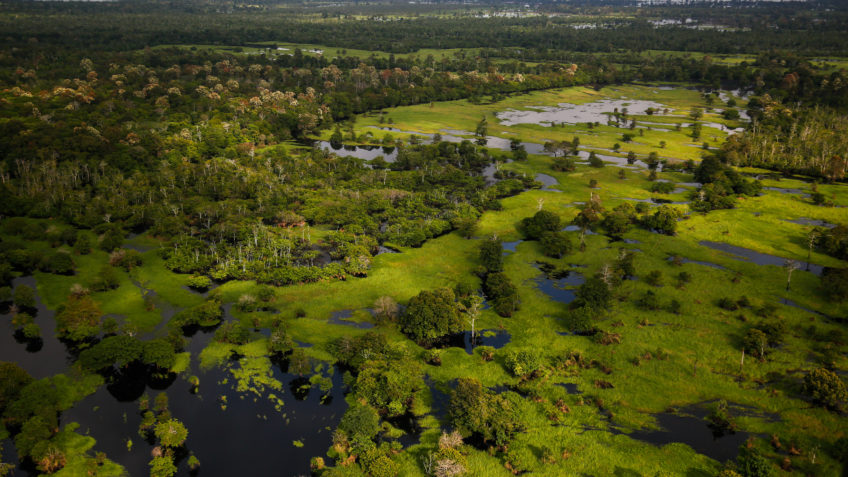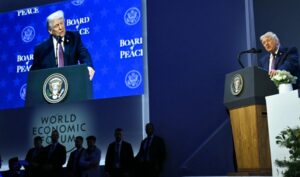
Book launched by former minister highlights the history, potential and challenges of the region and anticipates urgent debates to be held at COP30, writes Cândido Vaccarezza
In May, Aldo Rebelo launched his book “The Curse of Tordesillas”, over the Amazon, in São Paulo, Brasília and Curitiba. It counted on the attendance of political personalities, deputies of different ideological stripes, retired military personnel, left-wing and right-wing activists, businesspeople, intellectuals of various ideological profiles and 2 former presidents of the Republic: Michel Temer e Jair Bolsonaro.
Unfortunately, part of the criticism of Aldo’s book, made by left-wing segments, was in the presence of Bolsonaro and General Villas Bôas. This shows the degree of mediocrity of the hate politics that marks our country, on the right and on the left. Subject for another article.
I also want to register the presence of the mayor of São Paulo Ricardo Nunesof the deputies Rossi Whalepresident of the MDB, and Orlando Silvaformer government minister Lula e Dilma; Among economists, a special highlight goes to Paulo Nogueira Batistas, internationally renowned intellectual, former director of the IMF and former vice-president of the NDBthe Brics bank.
The presence and sales success, in a short time, would already be a milestone for the book, but the most important thing is its content. Written in an easy and concise way, it reflects a lot of research carried out by Aldo and a lot of knowledge of geography, history, current problems, the soul of the Amazon and the Amazonians and the indivisible integration between the Amazon and the project of the Brazilian nation.
In an almost emotional way, but without losing the coldness of the reality expressed by the facts, Aldo writes that:
“Brazil is experiencing days of immense international pressure to protect the Amazon from deforestation. The version promoted by diplomacy from the United States and Western Europe is that the country has been negligent in adopting effective measures to contain the destruction of the forest, disseminated by the media apparatus of NGOs financed from abroad and reproduced by a large part of the national and International.”
[…]
“Let’s take the case of the State of Amazonas, the largest in the North region, with 1,571,000 km², of which 95.46% is covered by native vegetation. […] Let’s make the following reasoning: if the total area of the following countries were transformed into forest, […] Even so, the State of Amazonas alone would have more forest than the combined territories of France, Germany, Italy, England, Denmark, Holland, Switzerland and Belgium.”
Aldo defends the need to repress criminal activities in the Amazon, illegal deforestation and clandestine logging, but rejects the version that there is a process of savannization in the Amazon.
In this regard, it is important to address the global discussion on climate and in particular COP30, which will be carried out in 2025 in Pará. Aldo opens the preface of his book by quoting Father Antônio Vieira: “Brazil is lost, gentlemen, because some of his majesty’s ministers don’t come here to seek our good, they come to seek our goods”.
Since the Treaty of Madrid, signed and sealed in 1750, between Spain and Portugal, with little difference, Brazil began to have its current geographic features. From then until today there has been greed and attempts at international interference, which demanded from the Portuguese government, initially, and then from the Brazilian governments, firm actions to assert national sovereignty over the Amazon, over our riches and over biodiversity.
There was theft of rubber tree seeds, illegitimate records of biodiversity by other countries, with immense losses for Brazil. Every moment like this is well told in Aldo’s book.
The topic now is the climate discussion, sometimes exacerbated by periodic climate phenomena, which may be related to so-called global warming. Developed countries, concerned about their markets, create a narrative, unfortunately, assimilated by Brazilian political groups: the fires in the Amazon are contributing greatly to global warming; the discussion of the Amazon is of global interest; and so on.
Now, if we consider the bombings and torpedoes launched by Israel in the war against the Palestiniansor the military exercises carried out by the USA, these release much more gases called the greenhouse effect than any fire in Brazil.
In most of the Amazon, oil, gas or minerals cannot be explored. Development is blocked, increasingly restricted. Meanwhile, we see the riverside population without drinking water, the indigenous population without energy and without access to minimum sanitation conditions and development continues to be blocked.
The millions of Brazilians who live in the richest part of Brazil, where we have the largest reserves of usable fresh water in the world, the largest mineral frontier and the greatest biodiversity in the world, are blocked as an impediment to economic and social advances.
No country in the world has the environmental protection mechanisms that the Amazon region has. There, in addition to the protection of indigenous lands, we have forest environmental protection areas that, in many of the States, exceed most of their respective territories. In areas destined for agricultural production, each farm is obliged to preserve 80% of the property.
Without hesitation, Germany, blaming the reduction in the supply of Russian gas, increased the use of mineral coal in energy production from 2022; Of the so-called rich countries, the biggest polluters in the world, none have a forest code and none have a clean energy use rate comparable to that of Brazil.
Brazil, our development and the use of our wealth are not the climate’s villains, we must look for them in the Northern Hemisphere.
Returning to COP30. Two agendas, with nuances, will divide internal discussions in Brazil:
- one represented by Ministry of the Environmentself-styled environmental NGOs and Ibamawho accepted and will defend the vision of halting development as defense of the environment, regardless of the consequences for the country;
- the other, which understands that it is important to defend the environment combined with the country’s economic and social development. In fact, the best way to preserve the environment is to associate it with technological development. It should be noted that the Amazon has the greatest potential for hydroelectric production in the world.
A great contribution to the world climate will be made by the USA if it removes barriers to agricultural products and Europe if it reduces the gigantic tax incentives for its agricultural production.
The book recently released by former minister Aldo Rebelo sets a new agenda for the discussion about the Amazon. The COP30 debates await us.
Source: https://www.poder360.com.br/opiniao/a-amazonia-por-aldo-rebelo/

